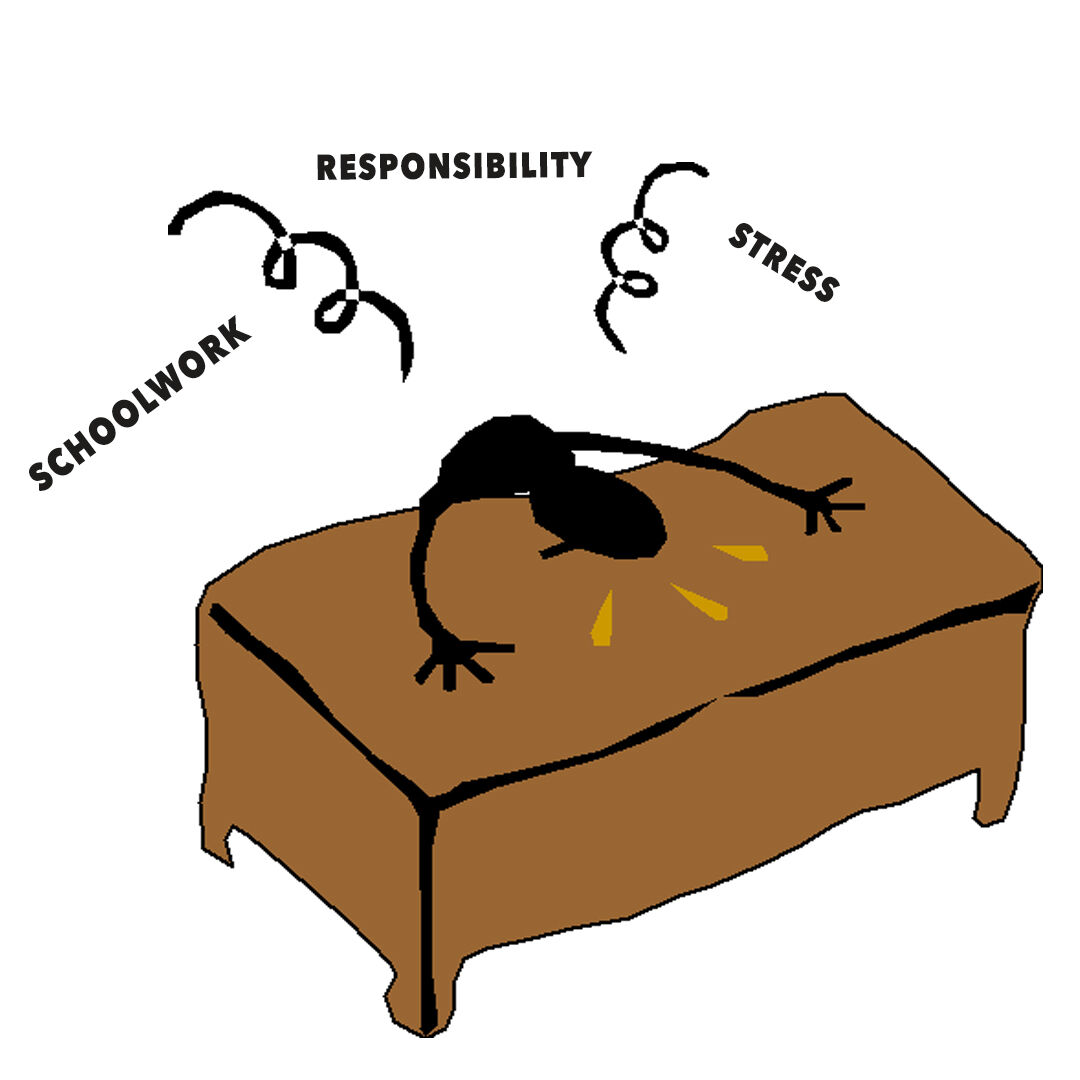More often than not, resident assistants feel overworked and underpaid. A good portion may feel isolated, lonely and left without a social life as the position takes priority over much of their lives. While some may find gratitude in the job and genuinely enjoy the time they spend as an RA, the majority tend to apply with financial reasons in mind or to gain experience with people and community-building.
With over 200 RAs spread across campus, there are over 200 reasons why each individual has chosen the job. However, expectations of and pressures on RAs consistently increase, while the stipend does not. This can have a negative effect on RAs’ mental health, as well as outside lives.
“I was working in the ideal situation; I loved my boss and coworkers and it was a healthy environment in the beginning,” Ana Figueroa, anthropology junior, said. “When you start in the position though, you don’t get any help. You get slideshows in a classroom setting (for training).”
RAs go through training every summer before fall classes and every winter before students get back from break. Often times, RAs have to cut weeks off their breaks for training. While this may be beneficial for people new to the position, returning RAs come back to sit in a classroom-like setting and go over information most already know or have lived through. This can be detrimental, as RAs have to chop time with family, friends or their relaxation.
Figueroa has a past of dealing with anxiety and depression. She said her condition was never worse than when she worked as an RA. Figueroa worked in Jackson Hall for a year and a half before submitting her resignation letter at the end of fall 2018.
“My mental health was really strong the first couple months and I was happy going into the job,” Figueroa said. “Around mid-October though, I remember feeling so lonely. While you’re always surrounded by people, you still feel so alone.”
The Department of Housing and Residential Life, like any other large entity or company, is constantly evolving and creating new rules and policies. Considering the RA position is under DHRL’s umbrella, it too has expanded from what it entailed only a couple years ago. New items are constantly tacked onto the job description. While manageable, the pressure of the position can swell. Feeling too weighed down to have time for anything else tends to clog RAs with negativity.
“The department keeps us in line by threatening our position, threatening us,” Figueroa said. “A lot of us wondered, ‘Am I going to get probation for this? Am I going to be in trouble for that?’ They punish us for things we should not be punished for.”
RAs are students before anything else. However, if a study group, homework or extracurriculars get in the way of executing the job, there is coercion to put those things on the backburner. The goal of the RA job is to aid, typically, first-year students with their transition to college. However, that goal has been taken and manufactured into so many subunits it may be hard to keep up.
Whether being required to have forced, unnatural conversations lasting 15-30 minutes with each resident, regardless of how many students an RA may be responsible for, or not being allowed to leave the building for two to three days including weekends, RAs are stretched too thin and expected to over perform for the $103 monthly stipend they receive.
“One time, I had to stay with a resident until 5 a.m., even with class the next day, because she was suicidal,” Figueroa said. “I was in a really stressful situation and she was mentally unstable and we were both in danger. (RAs) shouldn’t be in those positions. It really takes a toll on you and that $51.50 is not enough for the type of work we do and hours we put in.”
Working as an RA is a 24/7 job that is often compared to living in a “fishbowl.” No matter what an RA does or where they go, the job and all its responsibilities follow. They have to find a way to balance school, the position, extracurriculars and find time for themselves and their mental wellbeing. The latter erodes while RAs struggle to prioritize the other pieces of their lives.
“So many RAs develop severe mental health issues,” Figueroa said. “You lose your social life, your friends, and that put me in a very depressive state. DHRL is not aware of the negative effects their policies have on RAs but they should be so things can be fixed and the position can be more enjoyable.”
Mental health topics are often present during RA training or in-services. Rarely, however, do those sessions revolve around the employees’ mental wellbeing. RAs spend hours on end learning to assist residents yet feel as if no one is there to support them in return.
“DHRL does not reach out to us to make sure (RAs) are okay,” Figueroa said. “They tell us to just do all this extra stuff and if we don’t, we get fired. They don’t care who we are or what else we do. Our job is to help people and build community but honestly, who’s helping us? No one cares about the RAs.”
According to Laura Michelle Gordon at Oregon State University, student leaders, RAs in particular, may face increased pressures to be successful due to the constant expectation of upholding model behavior and being ready to respond effectively to any given situation. This makes them more susceptible to experiencing lower mental health status or mental illness.
The governing body of housing and residence life needs to make serious changes, and soon. If its student employees continue to be neglected and have their needs swept under the rug, there may not be any RAs in the future. The job is important and vital to the success of new Bobcats; an RA’s prosperity and mental stability should be equally as important.
– Bayley Bogus is a journalism senior
Categories:
Working as a Resident Assistant can negatively affect mental stability
February 4, 2019
0
Donate to The University Star
Your donation will support the student journalists of Texas State University. Your contribution will allow us to purchase equipment and cover our annual website hosting costs.
More to Discover








